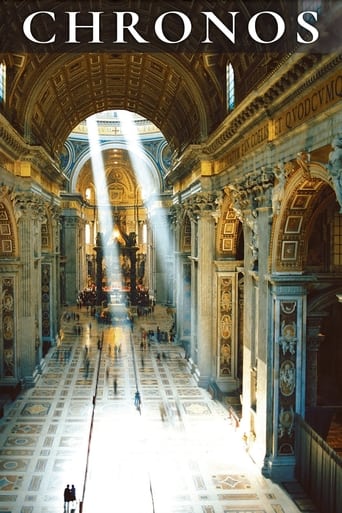


Chronos
Carefully picked scenes of nature and civilization are viewed at high speed using time-lapse cinematography in an effort to demonstrate the history of various regions.
-
- Cast:


Similar titles
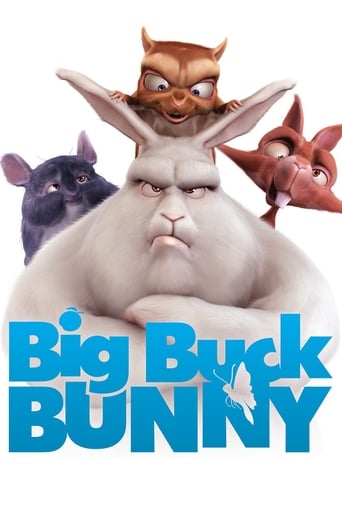
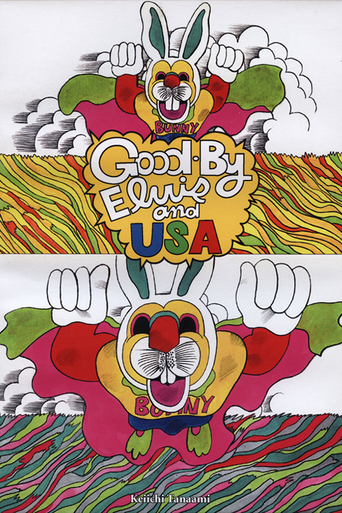
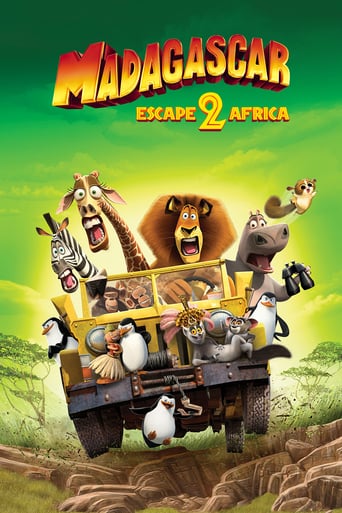

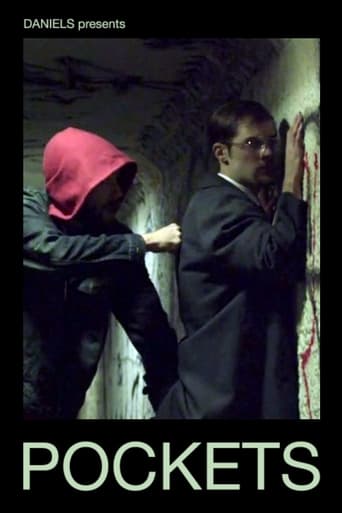
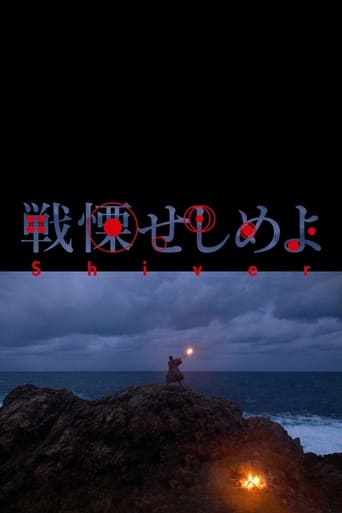
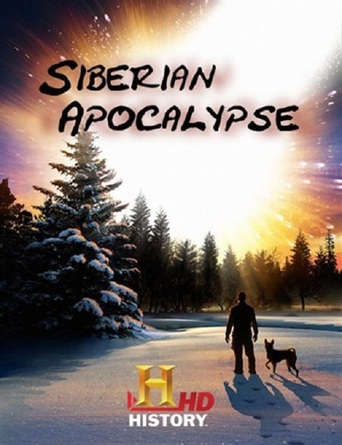
Reviews
SERIOUSLY. This is what the crap Hollywood still puts out?
I like Black Panther, but I didn't like this movie.
Crappy film
If the ambition is to provide two hours of instantly forgettable, popcorn-munching escapism, it succeeds.
HD landscape porn in the same vein as Koyaanisqatsi and Baraka, with the heavy social and environmental themes mostly cut away. Featuring an emphasis on staggering time-lapse photography, plus an understated, excellently-timed ambient score, it's a great way to shut off your brain, kick back and let your entertainment center stretch its legs. The regular, ambitious shifts in locale took me around the world and back in less than an hour, lingering just long enough to trap the breath in my throat with one stunning panorama after another. A spectacular, timeless, moving photo book that makes for terrific light viewing.
This is somewhere between documentary and photography. It has neither a script nor actors, and there is no narrator, no interview, and no still images. This is a moving picture, in the purest sense. The major focus is the time lapse cinematography of Ron Fricke, who also serves as director. That, and the soundtrack by Michael Stearns, is the sum total of "Chronos".There are deeper meanings to some, intended and accidental, but I won't cheapen things by speculating on what those are. The main drive is the battle of slow versus fast, city versus nature. Much of the time lapse goes by at what appears to be the same speed, but what moves blisteringly fast in the city seems to go by without change or notice in nature. Only the slow march of shadows is apparent across rocks and old ruins. These passages are full and heavy with the weight of time. They pull like the moon on the tides, dragging you back into long forgotten history. It comes like a slow, shallow breath between trains hurtling down tracks to uncertain destinations, and the bleeding blur of strangers up escalators.I've watched "Chronos" in many different contexts. It's been a relaxing background to the end of a long, tired day, or the full focus of my attention as I appreciate its depth of artistry. At forty-three minutes, it's neither too long to drag or too short to feel cut off. Each time after watching it, I find myself out of place with the speed of things around me. I feel the need to step back and breathe, to run faster, to walk slower. Somehow, some way, "Chronos" changed the way I see time.
A impressed Ron Fricke with his work behind of the marvelous "Koyaanisqatsi" (1983, directed by Godfrey Reggio) decided to make his own effort in displaying magnificent panoramic shots filmed with a time lapse photography in "Chronos". This time he's the director but what's worth of being that if you don't have a concept behind all beautiful scenes? I won't say that everything is thrown in the wind because it's not. It's very impressive in its 45 minutes, in its aerial shots (the ones filmed in Paris being the greatest moment), slow motion and fast forward moments but it doesn't have an idea, a concept that makes us look to the screen and say: that's interesting" or "here's something to learn at".It is easy to get bored, to get distracted (and I was at few parts) and all. But the major problem is to hearing the music that seems to have a capacity of detonate or explode your earphones, sound systems and similars since the noises, created by a expensive and hard to handle machine, a innovation at the time, is incredibly unlistenable. If Fricke wanted to pick someone and something from Reggio's classic it should have been picking Philip Glass to make the music. I said the same thing about "Baraka", but since I watched this one after "Baraka" I couldn't help but being bothered with the score, while the scenes stuck in your memory, the music must be forgotten in dark sides of your mind.Gotta love the fact that this film was beautifully restored, and for a film made in 1985 it is really something great. The images on the screen are vivid, unforgettable, dazzling, and everything is so timeless (except for the strange people walking down the rolling stairs, just look at the clothes and their hairstyle) that a careless soul might think that this film was released just now.Worth a view, and my suggestion is that you look for the other films I mentioned, they're far better than this, but watch this too and if possible make a second view but with the audio off, listening to another soundtrack, choosing a film soundtrack, classic music or progressive rock, anything besides Michael Stearns tracks. 9/10
Space, time and matter. While the first might have started at the birth of the universe and the later is created and destroyed everyday, time stands alone. It cannot be undone and if there is anything that can resist time, it is time itself. In this sense time is the most mysterious. Is it even real? Is it only a creation of mankind to explain the beginnings and the ends? In Greek Mythology, Chronos is known to be the god of time. In this sense, Ron Fricke is trying to unite both conceptions of time through vast, open spaces and closed, personal areas. In his film, he tried to put the matter and space in perspective, showing that time had a greater influence.When it came out, Chronos was considered as a very advanced, an "ahead of its time" kind of movie. The ground breaking Koyaanisqatsi was nearly 5 years old. The technical attributes of the movie were far greater than what could be found in popular, conventional cinema. The synthesized music was relatively new to the world and Michael Stearns was already establishing himself as both a leader and a pioneer in the ambient music department, even creating a particular instrument for the film. And of course, when Chronos came out back then, similar movies were hard to find.Needless to say: Chronos relied heavily on the overall technology of 80's.Nowadays, the technical attributes found in Chronos have been beaten by other movies. Music can now be created with complex, yet easy to use programs by using extremely effective computers which can produce an almost infinite number of sounds, effects, etc.. And finally, there are many similar movies nowadays, and we can find time lapse captures everywhere from typical Hollywood movies to televised advertisements.This now leads people to believe that this movie is unoriginal, lacking depth and that the music is not good. As ironic as it sounds, Chronos is slowly being killed by time itself, whether it be real or not. But that does not mean that the movie is now bad today. Of course, there are obstacles that the viewer must surpass in order to view the movie and to think " Let's compare it to other movies in the 80's ".When criticizing this movie, many people will compare it to Baraka ( which was made many years later, must I add ) and automatically point out the obvious: It's always the same areas, the music is always the same, the overall "message" is lacking.Fricke didn't have the budget he had for Baraka. Stearn's music was innovative and fresh at the moment and yes, there is a "message" in Chronos, you just didn't take the "time" to see it.In Baraka, the message concerning spirituality and humanity is easier to understand for a simple reason: Ron Fricke did it on purpose. The most important religions and areas of the world are shown. The whole movie is made in a way to connect with the entire world. In this sense, Baraka is a movie about the Earth and its inhabitants and what is around and beyond it. You will notice that in Baraka there are things you can easily understand and point out while there are others more obscure themes that you might not even notice.Chronos is far more complicated for the viewer. While Baraka is still an experimental film, it is not an abstract film. Chronos is both an experimental and abstract film. In this sense, it is way harder for the viewer to acknowledge Chronos to actually have a meaning and to make something out of it.This shows how Ron Fricke truly is a mastermind when it comes to giving other people the opportunity to come out with their own interpretations of his movies. A short comparison with Geoffrey Reggio ( Fricke's partner ) can be made. While Reggio builds his movies on a specific message which make the viewer think after watching the films, Fricke chooses to make the viewer think while he his still watching. Most viewers will often try to find a meaning to Chronos after watching it or they will try to associate a specific series of scenes.Of course, Chronos is not as good as Baraka. I believe everyone can agree on this. But everyone should all agree that Chronos was some sort of cinematic homework for Fricke. Not only was it his first own film, but he was also stepping on a different kind of path than Reggio's. He actually found his own path, his own style, a cinematic trademark. And for this originality and advance in film, Chronos deserves to be considered as a good movie. Not the best, but one of the good.

